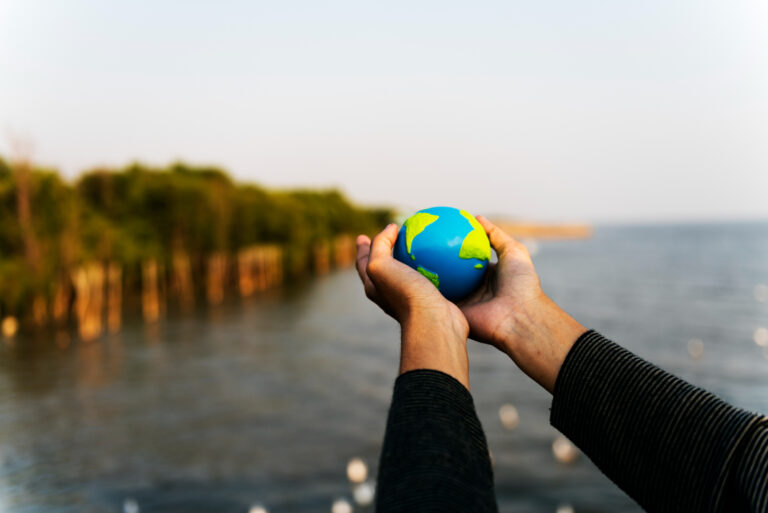Clean water is one of the most fundamental necessities for human survival and a healthy planet. Yet, access to safe and reliable water sources remains a significant challenge for millions of people worldwide. Additionally, the threat of climate change poses an increasing risk to water resources, exacerbating the already existing water crisis. In this blog, we will explore the crucial link between clean water access and climate protection efforts, emphasizing the urgent need to address this critical issue for the well-being of both humanity and the environment.
The Global Water Crisis
The world is facing a water crisis with far-reaching consequences. According to the United Nations, around 2.2 billion people lack access to safely managed drinking water services, and more than 4.2 billion people do not have access to safely managed sanitation facilities. This has severe implications for public health, education, gender equality, and overall socio-economic development.
The impacts of the water crisis are particularly dire in developing countries, where vulnerable communities suffer the most. Inadequate access to clean water leads to the spread of waterborne diseases, malnutrition, and decreased productivity. Moreover, women and girls often bear the burden of collecting water, spending hours every day walking long distances to fetch water, which perpetuates the cycle of poverty and hinders their opportunities for education and economic empowerment.
The Link Between Water and Climate Change
Climate change is significantly altering the Earth’s hydrological cycle, resulting in more frequent and intense extreme weather events. These changes directly impact water resources, making access to clean water even more challenging. Here are some ways in which climate change affects water:
- Droughts: Rising temperatures lead to more frequent and severe droughts, reducing the availability of freshwater sources for both drinking and agricultural purposes.
- Floods: Climate change intensifies rainfall patterns, leading to increased occurrences of devastating floods, which can contaminate water supplies and damage infrastructure.
- Glacial Retreat: Many regions depend on glacial meltwater as a crucial water source. With the accelerated melting of glaciers due to global warming, this supply becomes uncertain.
- Sea-Level Rise: Coastal freshwater aquifers are vulnerable to saltwater intrusion as sea levels rise, making them unsuitable for human consumption or agriculture.
- Water Quality: Warmer temperatures can promote harmful algal blooms and bacterial growth in water bodies, reducing water quality and posing health risks.
The Importance of Integrating Climate Protection and Water Access Efforts
Addressing the water crisis and combating climate change should not be isolated endeavors. These challenges are intricately connected and require integrated solutions. Here are some ways in which linking clean water access and climate protection efforts can create a positive feedback loop:
Sustainable Water Management: Implementing sustainable water management practices, such as rainwater harvesting, wastewater recycling, and watershed protection, can not only improve water access but also contribute to climate mitigation by conserving water resources and reducing the carbon footprint.
Resilience Building: Strengthening water infrastructure to withstand the impacts of climate change, such as floods and droughts, is vital to ensure a reliable water supply during extreme events.
Reforestation and Wetland Conservation: Protecting and restoring forests and wetlands can enhance water quality and quantity while sequestering carbon dioxide, contributing to climate change mitigation.
Renewable Energy: Promoting renewable energy sources, such as solar and wind power, can reduce greenhouse gas emissions and provide energy for water treatment and pumping facilities, making water access more sustainable.
Public Awareness and Education: Raising awareness about the interdependence of clean water access and climate protection can foster community engagement and support for sustainable initiatives.
Expanding the Scope: Collaboration and Policy Initiatives
To effectively address the intertwined challenges of clean water access and climate protection, collaboration between various stakeholders is crucial. Governments, international organizations, private sectors, local communities, and NGOs must come together to devise comprehensive strategies and implement solutions on a global scale. Some of the key areas that demand collective action include:
Investment in Water Infrastructure
Governments should prioritize investments in water infrastructure, especially in developing regions, to improve water access and ensure the resilience of these systems in the face of climate change impacts. These investments can take the form of modernizing water treatment plants, expanding water distribution networks, and implementing climate-adaptive technologies.
Climate Finance
The mobilization of climate finance plays a vital role in supporting climate-resilient water projects. By directing funds toward sustainable water management initiatives, we can simultaneously improve water access and contribute to climate change mitigation and adaptation efforts.
Research and Innovation
Encouraging research and innovation in water-related technologies can lead to breakthroughs in water purification, desalination, and efficient water use. Similarly, advancing climate science and data collection can help better predict water availability and climate change impacts, guiding policymakers in making informed decisions.
International Cooperation
Climate change and water challenges transcend national boundaries. International cooperation is essential for sharing knowledge, resources, and best practices to tackle these issues collectively. This collaboration can lead to capacity-building programs, technology transfer, and coordinated disaster response measures.
Advocacy and Awareness
Public awareness and advocacy efforts play a pivotal role in driving policy changes and inspiring individual actions. Campaigns that highlight the connection between clean water access and climate protection can mobilize public support, urging governments and businesses to prioritize sustainable practices and investments.
Local Solutions and Empowering Communities
While international and national efforts are crucial, local solutions are equally vital in ensuring clean water access and climate protection. Empowering communities with the knowledge and tools to address their specific water challenges can have a significant impact. Some approaches include:
Community-led Water Management
Engaging local communities in water management decisions fosters a sense of ownership and ensures that solutions are tailored to their unique needs. Empowering communities to manage water resources sustainably can lead to lasting improvements in water access and usage.
Climate-Resilient Agriculture
Promoting climate-smart agriculture practices can reduce water consumption and improve soil moisture retention, making farming more resilient to climate fluctuations. This can enhance food security while conserving water resources.
Education and Training
Providing education on water conservation, sanitation, and climate change empowers individuals to adopt sustainable practices in their daily lives. Schools and community centers can be instrumental in disseminating knowledge and instilling a sense of responsibility for environmental stewardship.
Gender Equality
Recognizing the gendered impact of water scarcity is vital for sustainable development. Empowering women and girls to actively participate in decision-making related to water resources and climate adaptation can lead to more inclusive and effective solutions.
The link between clean water access and climate protection efforts is undeniable. As the world faces mounting challenges from water scarcity and climate change, it is essential to recognize the mutual benefits of integrating solutions for both issues. Governments, organizations, and individuals must work together to implement sustainable water management practices, promote renewable energy, and protect vital ecosystems to safeguard clean water access for all while simultaneously mitigating climate change.
Ultimately, a collective effort to ensure clean water for all will not only enhance human well-being but also contribute to building a more resilient and sustainable future for the planet. By recognizing the intrinsic connection between water and climate, we can move forward with purposeful action, leaving no one behind in the pursuit of a more equitable and climate-resilient world.








